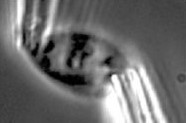Research Mentoring Strategy
The Stephens lab has developed a system encompassing four major points – Priority, Think, Communicate, and Repeat – to guide young scientists through becoming an independent thinker and working in a lab setting.
Priority represents taking care of life and school before lab, but when a student is in lab they should be focused on lab. For more experienced students, Priority shifts to managing time and putting effort into the most worthy tasks.
Think forces the development of an independent thinker by challenging the scientist to provide an answer to any question they want to ask (right or wrong). Young scientists ask questions without thinking, and expect to get an answer that they may not even learn from, comprehend, or be able to apply in the future. Instead the idea “bring me a solution, not a problem” encourages independent thinking by forcing the student to ask both meaningful questions and develop a hypothesis for the answer or how to answer the question. Furthermore, Think also applies to being mindful during experiments to either focus on a task at hand or to question or learn about a procedure to help the student realize, “why am I doing, what I am doing?”
Communicate builds on the foundation of Think by forcing a student to ask and answer questions with others in lab. More specifically, Communicate drives conversations that will reveal the student’s true level of knowledge since communication demonstrates their level of understanding. Divulging this information allows me or other lab members to teach the student whatever they do not understand or know. Finally, Communicate includes a focus on the fact that data is meaningless unless you can convey your findings to others. This point is encompassed in preparation and implementation of science presentations (poster, talks, lab meetings, conferences, papers, grants, etc.).
Repeat speaks to the importance of practicing to improve while acknowledging that failure is just a steppingstone to success. It also highlights that repetition and recapitulation are key parts of science. Ultimately, Repeat reinforces the repetition of these four points over and over and day-to-day to guide the growth of an independent thinker in training.
Overall, my guide to developing an independent thinker is based on scientific tools to ask and answer good questions while engaging with other members in the lab daily. My approach strives to create a learning environment to encourage an active mindset that becomes equipped to overcome challenges in school, work, and life.
